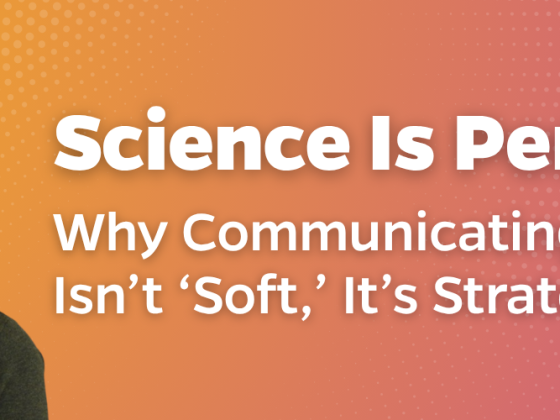Public Interest Communications Comes of Age
The Center for Public Interest Communications at the University of Florida’s College of Journalism and Communications released its 2025 “Real Good Census.” This inaugural survey illuminates the significant growth, strategic depth, and professional maturation of the public interest communications field. From pioneering efforts to establish a dedicated academic focus to today’s thriving community of practitioners and scholars, the field is showcasing itself as a vital and rewarding area of practice for those dedicated to serving in the public interest.
The 2025 Real Good Census offers a crucial snapshot of a discipline that has rapidly developed from foundational concepts and pioneering work into an essential force for addressing complex challenges. The findings underscore a field characterized by skilled professionals, strategic thinking, and promising career trajectories.
“The Real Good Census confirms the remarkable journey and current vibrancy of public interest communications,” said College of Journalism and Communications Dean Hub Brown. “What began with visionary leaders like Frank Karel, who endowed the first academic chair in this discipline at UF, has blossomed into a sophisticated and indispensable field. It’s a testament to the growing recognition of strategic, science-based communication as a critical tool for societal betterment, and the professionals within it are leading the charge.”
The census highlights several key characteristics that define the dynamic nature of the public interest communications field:
- Competitive Compensation Reflects Field’s Value: Demonstrating the increasing value and viability of careers dedicated to public interest, the census reveals strong earning potential. A notable 21.1% of practitioners earn $150,000 or more annually from their work in public interest communications, with an additional 16.3% earning between $100,000 and $149,999. The calculated average income from public interest communications sources is reported at $87,027, outperforming the average annual salary for general public relations specialists ($77,720, U.S. Bureau of Labor Statistics, 2023).
- A Maturing Discipline Defining Its Core: The field is confidently solidifying its identity, with 88.4% of respondents expressing agreement with a working definition first developed by the inaugural Karel Chair, Ann Searight Christiano, and her colleagues. This consensus is coupled with a dynamic openness to evolution, as evidenced by 24% suggesting thoughtful refinements. This underscores a discipline that is both establishing its foundations, built on a legacy of strategic thought, and actively shaping its future.
- Centrality of Strategic Storytelling: The census positions public interest communicators as pivotal thinkers and architects of change. “Storytelling” and “Communication strategy development” emerged as the cornerstone skills, distinguishing the field’s focus on high-level planning and narrative construction, moving beyond mere tactical execution to drive meaningful societal outcomes.
- Proactive Embrace of Future-Focused Skills: The findings highlight the field’s forward-looking orientation, with significant demand for training in areas critical for future impact. These include AI tools, human-centered design, advanced interviewing and focus group methodologies, systems thinking, and data analysis. This eagerness for new competencies signals a field committed to innovation and maximizing its effectiveness.
- A Highly Experienced and Educated Professional Corps: Public interest communications is built upon a foundation of exceptional talent. The survey reveals a workforce where over 96% hold a bachelor’s degree or higher, and an impressive 60.5% possess graduate or terminal degrees. This academic achievement is matched by deep practical experience, with 62.8% of professionals having worked in related areas for over 11 years. Furthermore, 79% have received specific training or education in public interest communications, indicating a strong professional identity and a clear opportunity to engage the remaining 21% with targeted development programs.
The census further details that the field is actively engaged with critical issues such as education, health and health equity and social or economic justice, with an anticipated growing focus on human rights.
The comprehensive 2025 Real Good Census report provides in-depth analysis of these insights, offering a richer understanding of practitioner demographics, organizational landscapes, prevalent success metrics, and key areas for future research within the public interest communications field.
Download the Full Report to Explore the Field:
About the Center for Public Interest Communications:
The Center for Public Interest Communications, part of the University of Florida College of Journalism and Communications, is the first-in-the-nation center dedicated to understanding, testing, and applying the science of strategic communication to drive positive change. Pioneered at UF through the visionary support of alumnus Frank Karel and his wife Betsy, who endowed the Frank Karel Chair in Public Interest Communications, the Center builds on a legacy of practitioner-led advancement in the field.
Guided by insights from behavioral, cognitive, and social science, and employing methodologies like systems thinking and human-centered design, the Center helps organizations worldwide develop and implement powerful communication strategies. It offers specialized training to government agencies, universities, foundations, public interest communications agencies, and nonprofits. Key initiatives include frank, an acclaimed conference that convenes leaders in the field, as well as science communication courses and strategic communication academies for leaders and scholars.
Building on the foundational work of inaugural Karel Chair Ann Searight Christiano, current Chair Angela Bradbery is focused on further building the academic discipline, expanding the curriculum to other universities, and preparing the next generation of students to use strategic communications to advance change in the nonprofit and public sectors.
The Center is committed to developing and sharing evidence-based strategies that empower communicators, solidifying the critical impact and ongoing growth of public interest communications. It is organized as a self-supporting fee-for-service educational activity at the University of Florida.

